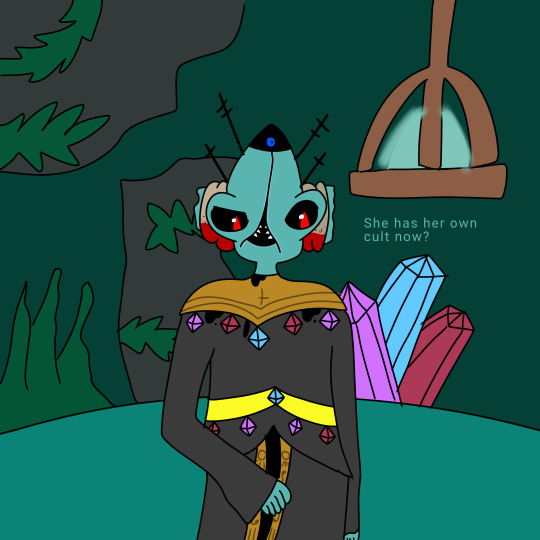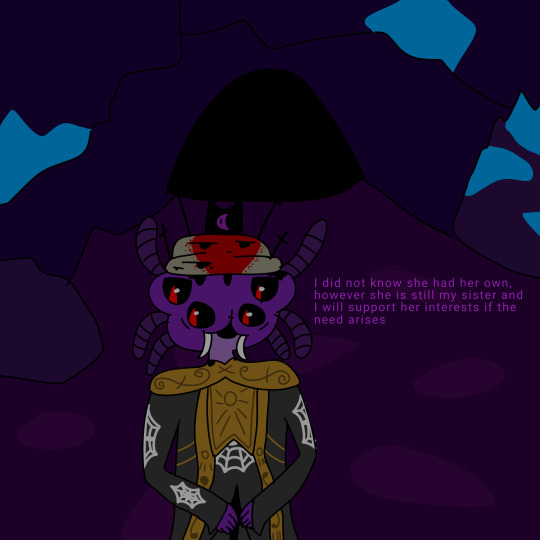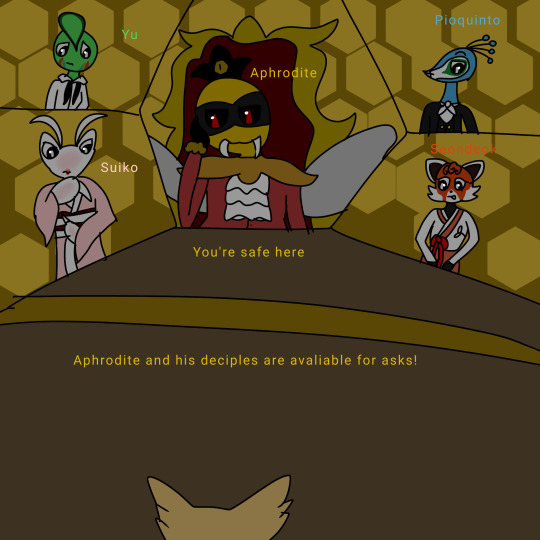#cult of aphrodite
Photo

“The Birth Of Suburbia” Photographer Rosaleen Ryan, 2012
333 notes
·
View notes
Text
UPG: On the nature of the gods, ancestors, and maybe also mystery cults
What is a god but many of the blessed dead coming together in an afterlife. Many joined together across space and time to form a consciousness. Together they can speak and act and live. To me that is the mystery cult. What is a blessed afterlife but joining with a god. And when you pray and libate to a god you become part of them. In life and death you then can join with many gods and in life they live close to you.
They love to come together around you. Each time you pray and give offerings you add to them as a god. You give part of yourself and those blessed dead that are always around us can join to become part of that god to be near you.
Giving to a god is also a way to give to the blessed dead or our ancestors. There then is a way that ancestral gods mean something. Our ancestors can remember what it means to be part of a god they themselves sacrificed to. Though I should say, that doesn’t mean you cannot worship gods who are not ancestral to you. You still help a god come together around you by giving to them.
So libate! The gods live and they live around us. They can hear and feel us and they are always with us.
#hellenic deities#hellenic polytheism#helpol#mystery cults#Eleusis#Eleusinian mysteries#Dionysian mysteries#cthonic gods#12 olympians#zeus#hera#demeter#hestia#poseidon#hades#dionysus#hermes#apollon#apollo#artemis#ares#athena#hephaestus#persephone#kore#theoi#theoi worship#greek gods#dionysus worship#Aphrodite
24 notes
·
View notes
Text
𝗔𝗽𝗵𝗿𝗼𝗱𝗶𝘁𝗲: Perse, my daughter is dating your daughter...
𝗣𝗲𝗿𝘀𝗲𝗽𝗵𝗼𝗻𝗲: And my son is dating your son too Aphro.
𝗕𝗼𝘁𝗵: *hugging and sobbing*
𝗭𝗲𝘂𝘀: .... Since when do you both have sons and daughters...?
𝗛𝗲𝗿𝗮: They are talking about Athena dating Artemis and Apollo dating Ares...
Tagging the members of the cult
@withlovefromolympus @0lympian-c0uncil
#artemis x athena#ares x apollo#the cult is growing stronger#artemis#apollo#athena#ares#zeus#hera#aphrodite#persephone#greek mythology#greek gods#incorrect mythology#mythology memes#incorrect quotes
381 notes
·
View notes
Text



sketches in between fancier wips
#cult of the lamb#cotl au#cotl deal au#my art#doodles#my sibling wanted nari sitting at a bar#im such a simp for toww even when theyre just my au version ughhfhfh#and a bishop aphrodite for funnn#im working on somethings special
49 notes
·
View notes
Text
Spring is for
Romantic poetry, reciting and acting out Shakespeare, roses, fresh pomegranates each day, classical music, Hellenism, Latin and Greek, vulgar girlhood, morbid longing for the picturesque

#dark academia aesthetic#spring#girlhood#the tragedy of girlhood#female suffering#roses#pomegranates#aphrodisiac#Aphrodite#hellenistic#greek myth retellings#poetry#romantic poetry#romantic academia#romanticizing sadness#writers on tumblr#morbid longing for the picturesque#donna tartt#the secret history#greek literature#Sylvia Plath#female poets#female artists#prose#fawn#cult of the lamb
12 notes
·
View notes
Note
Shamura and the other bishops, what's your opinion on Aphrodite's cult? Are you enemies? Allies?



*I feel I need to say this, but Shamura and Kallamar don't know that Aphrodite is trans, as he transitioned after he left those two and Narinder
8 notes
·
View notes
Text
Aphrodite surrounded by roses
#aphrodite#aphrodite altar#aphrodite devotee#witches of tumblr#witch community#hellenic witch#mediterranean witch#sea witch#ocean witch#hellenistic witch#aphrodite cult
92 notes
·
View notes
Note
I learned so much about Juno (the Roman goddess) from wiki after I sent that ask 😂 I'm honoured that you drew from it
Although nobody knows of her exact origin, Juno is one of the three original Roman gods — Jupiter, Juno, and Minerva.
Early representations of Juno vary, but Roman literature does pretty much regard her as the Queen of Heaven. She was worshipped in the East as the goddess of both love and war, and often closely identified with Astarte, the patron goddess of Carthage. In the West, we'd find two distinct characterizations of her in different places: the lawless war goddess Juno Moneta (Juno Sospita if you’re Lanuvian), deity of soldiers and spears, of warning, advising, instructing — and the Juno of the Capitol, patroness of women, of marriage, of love, and female life (some known surnames are Pronuba, Matrona, Juga, Lucina, Opigena).
Above reference: Hands, A. W. (1910). JUNO MONETA. The Numismatic Chronicle and Journal of the Royal Numismatic Society, 10, 1–12. http://www.jstor.org/stable/42663622
Further explanation and name breakdown:
Juno was known by a number of epithets, each of which showcased a distinct persona of the goddess. For her role in succoring the needy and protecting the city of Rome during war, she was called Juno Sospita, or “Juno the Savior". Juno Curritis/Curitis/Quiritis, or "Juno of the Spearmen," was said to be the only deity worshipped by all thirty curiae (military and political divisions) established by the founder and first Roman king, Romulus. She was also called Juno Moneta, or “Juno the Warner,” for bringing news of danger and preparing the threatened. She was named Juno Regina or “Queen Juno [of gods and men],” for her role as a head of state and member of the Capitoline Triad (with Jupiter and Minerva), but was also called Juno Opigena, or “Juno the Midwife,” for overseeing childbirth. Finally, she was known as Juno Lucina, or “Juno Who Brings Light,” for bringing light, life, and enlightenment to those who worshipped her.
Above reference:
Apel, T. (2020, August 16). Juno. Mythopedia; Mythopedia. https://mythopedia.com/topics/juno
Juno: Protective Roman Goddess. (2022). Vroma.org. http://vroma.org/vromans/bmcmanus/juno_info.html
Why history is difficult to know for sure:
After the arrival of Greek culture, the mythology of Roman religion and the identities of its deities became muddled. Stories about the gods, whether Roman or Greek, become intermixed. Juno, despite being closely associated with the Greek deity Hera, was, in her own right, an important god. She was the queen of heaven, the protector of women, the wife (and sister) of the all-powerful Jupiter. She was the mother of the war god Mars. Gradually, however, the entire mythology surrounding the gods — Jupiter, Juno, Neptune and all the rest — disappeared with the emergence of Christianity.
Above reference:
Wasson, D. L. (2015, April 8). Juno. World History Encyclopedia. https://www.worldhistory.org/Juno/
#juno basically embodied different things depending on the time and place if that wasn't clear#she's got a real fluid identity which made her very approachable and broadly worshipped - indicated by the ridiculous number of dedicated#temples (cough) cults (cough) and festivals#so some scholars have reason to believe that Astarte (form of juno in the near east region) is basically the greek love goddess Aphrodite#which is rather fucking confusing because Astarte (deity of married love) and Aphrodite (deity of love) both coexisted distinctly#and then greek HERA wife of zeus just comes along and her whole deal appears to have been inspired by astarte (east) and juno (west)#by the way. The Romans used an older name for Jupiter (one of the three original gods) - he was called Jove.#the name is indicative of a sky god - you can make the connection to zeus from there (god of sky and thunder)#do i know which gods came first? was it the greeks? i don't have a clue#because i DIDNT REALLY PASS HISTORY#i just fixated on one special specific topic like a maniac and banked my grade on begging and sniveling to my british prof#he gives me life what a guy#ANYWAY THIS IS REALLY LONG#THANKS GUYS#long post#asks#mine
40 notes
·
View notes
Text
i just saw a photo of a recently unearthed ancient greek medallion of aphrodite wow it is so gorgeous but also i still feel that it is so disrespectful that they dug up the a 2000 yr old grave. while archeological discoveries contribute such valuable information to history it still makes me very sad that this woman’s final resting place was disturbed and likely will not have her medallion re-buried with her
#signed fawn#based on the other thing s found in her grave it’s speculated that she was either a priestess of aphrodite or a follower of the cult of-#aphrodite#so this all feels very disrespectful to me idk
8 notes
·
View notes
Text
“Aphrodite enjoyed many cult epithets in antiquity that reflect her marine origins and her intimate affinity with the sea (for a thorough survey of Aphrodite’s marine cult titles: Pirenne-Delforge 1994). The goddess was known as Aphrodite Pontia, “She of the Deep Sea” (Pausanias, Description of Greece 2.34.11), and she was called Pelagia, “She of the Open Sea” (Artemidorus, Interpretation of Dreams 2.37); the names Thalassaie¯, “She of the Sea,” and Gale¯naie¯, “She of the Calm Sea,” are also attested as cult titles (Pirenne-Delforge 1994). Like many maritime cultures throughout history, the ancient Greeks had numerous words for the saltwater realm, including the most common word for “the sea,” thalassa, but also pontos, “the deep sea,” and pelagos, “the open sea.”
Other noteworthy aquatic epithets demonstrate Aphrodite’s close relationship with sailors and seafaring, merging her two foremost dominions over the waters of the sea and the breezes of the sky. As the goddess who promises successful navigation and safe voyages home, Aphrodite also enjoyed the cult epithets Euploia, “She of the Smooth Sailing” (Pausanias, Description of Greece 1.1.3); and Limenia or Epilimenia, “She of/at the Harbor” (Pausanias, Description of Greece 2.34.11). The sanctuary of Aphrodite Euploia at Knidos boasted the famous nude statue of the goddess sculpted by Praxiteles (ca. 350 bc), a site that became a major tourist attraction in later Greek and Roman antiquity.
Aphrodite was regularly worshipped at numerous ancient sanctuaries on beaches, islands and harbor towns, and in particular along the major trade routes used by Greek and Phoenician merchants and mariners, who played a significant role in the spread of her worship (most recently, with comprehensive overview: Larson 2007). Indeed, it was a frequent and expected structural element of Greek seaports and shorelines to feature a temple of Aphrodite, whose patrons would include ships’ crews, sailors and marines, ship owners, traders, fishermen, recent immigrants and colonists, seagoing tourists and all the other salty types who might congregate on the waterfront. Situated on the water’s edge in between land and sea, the beach or harbor represents a liminal location where the water meets the land and they converge, forming an altogether distinctive maritime milieu. So it was only natural to locate a temple or sanctuary of Aphrodite, goddess of mixis, in this interstitial space open to sea and sky. Such a coastal site was commemorated in a verse by Anyte of Tegea, an Arcadian Greek poet who lived in the early third century bc and was celebrated for her delicate epigrams. One of her surviving short poems describes a cult statue of Aphrodite located by the sea. Kypris keeps this spot. She loves to be here, Always looking out From the land over The brilliant sea. She Brings the sailors good Voyage, and the sea Quivers in awe of Her gleaming image. (poem 22, Greek Anthology 9.144, trans. Rexroth, 1999)
In this striking epigram, the poet Anyte blurs the spatial boundaries between the goddess perched high atop a bluff and the sea from which she was born and over which she still holds sway. Aphrodite gazes with benevolent delight and satisfaction over the shimmering expanse of ocean, no doubt admiring the reflection of her lovely figure rippling in the translucent water. Beyond the marina are the sailors in their ships at sea, full of gratitude for Aphrodite’s divine blessing, and seeking to catch a glimpse of her kindly, smiling statue as a sign of their successful navigation. The last line of the epigram depicts the sea itself returning the goddess’ gaze: beholding her shining, sunlit image, the waves tremble both with reverential wonder at her awesome power and with a frisson of pleasure at her radiant beauty. As their sight lines mingle through the bright air, the goddess and the sea join in mutual admiration of each other.”
- Monica S. Cyrino, Aphrodite
5 notes
·
View notes
Text
Just found out my birthday is/was celebrated as Fortuna in Ancient Rome (Fors Fortuna) and I am so pumped. I never knew she existed! Fortuna is the goddess of luck, chance, and fate - and also linked to a bunch of other gods, but in Pompeii they found a link between her and Isis, making her Isis-Fortuna.
Anyway, I just think it's really neat!
#I love epithets so much#I love that they did crossovers just like now#I mean I knew they did but- it makes it even cooler since she was given a cult on my birthday#Fortuna Victrix brought victory in war; that's just a badass epithet#Aphrodite Areia and Fortuna Victrix#that's so cool#Fors Fortuna
2 notes
·
View notes
Text

💐
#my art#cotl au#cotl deal au#cult of the lamb#its her!#aphrodite!#trying and failing to win ur heart </3
42 notes
·
View notes
Text
Aine: Radiant Celtic Goddess of Love, Summer, and Sovereignty | Ancient Origins
https://www.ancient-origins.net/myths-legends/aine-radiant-celtic-goddess-007097

View On WordPress
#12th Century AD#Aine#Aphrodite#August 1#Bishop of Cashel#Brigid#Celtic#Cormac mac Culennain#County Limerick#Cult of Aine#Dun Clare#Dun Gair#Dun Ochair#Eogabail#Faerie#Faery Queen#Fenne#Ferchess mac Comman#Goddess#Grianne#Ireland#Irish Mythology#King Ailill Aulom#Leabhar Laignech#Limerick#Lough Gur#LOve#Manannan Mac Lir#Moon#Morrigan
0 notes
Text



Been waiting for a good time to bring these 5 in and thought now would be good!
(TW for ED mention with Pioquinto and Suiko)
Aphrodite, the queen turned king bee is the brother of Kallamar, Shamura, and Narinder (and by extension Heket and Leshy, but he left before those two were in the picture) that runs his own cult that values beauty above all else! He's quite egotistical, but he does genuinely care at times especially for his deciples (Seondeok and Pioquinto more so since theyre all married). Frankly all of them aside from Seondeok need therapy
Pioquinto is a scholar who acts pretty over confident, however he is constantly self concious about his weight and tries to skip meals no matter what Aphrodite says. Aphrodite makes sure he's getting fed enough.
Seondeok is easily the kindest of the desciples and enjoys helping the newer members alot, even if they are ugly according to the higher ups and are doomed to sacrifice, which she enjoys watching despite her nature. She also often keeps an eye on her fellow desciples so they don't hurt themselves.
Suiko is probably the meanest out of the deciples, but she does enjoy the other 3. She is constantly giving lower level followers shit and ordering them around for the good of the cult. She really needs some kind of therapy, as similar to Pioquinto she has an ED but takes it much further, I won't go into details.
And finally the newest deciple Yu really does not think he deserves the position. He doesn't think his looks match up to the other desciples and at the same time is constantly having an identity crisis. He occasionally forgets that he's a desciple and calls the other 3 by their ranks or something of the like. To say he has horrid anxiety and is embarrassed to high hell when that happens is an understatement.
1 note
·
View note
